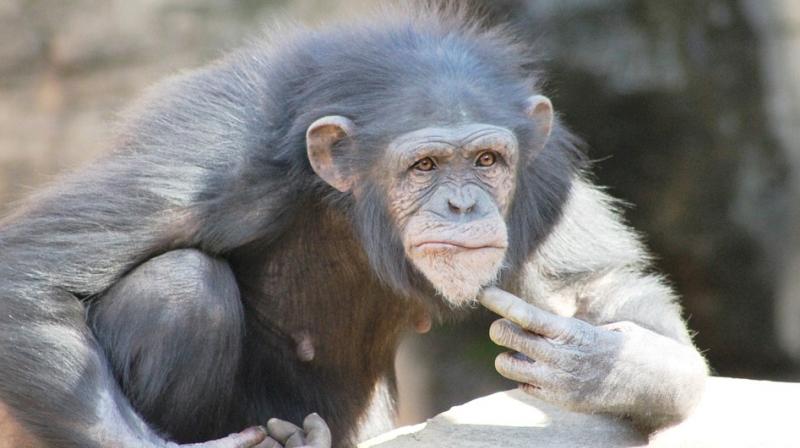Chimps are good fathers, devoted to offspring: study

Washington: Male chimpanzees - a highly promiscuous species - are more devoted to protecting their offspring rather than building relationships with females, a new study on humans' closest living relatives suggests.
Researchers at George Washington University in the US also found that chimpanzees spend time with non-mating female chimpanzees which are caring for their successors. This finding is unexpected since the species is highly promiscuous and researchers previously questioned whether male chimpanzees could recognise their offspring.
Since males spending time with nursing mothers did not increase the likelihood that they would be the father of that mother's next infant, the findings support the paternal effort hypothesis, in which males associate more with mothers in
order to protect their offspring, rather than curry favour with the female. The research contributes to the broader anthropological question of why human fathers invest so much in offspring.
Researchers conducted the study based on long-term data from Gombe Stream National Park in Tanzania in Africa. The study used more than 25 years of behavioural data. Researchers examined patterns based on 17 father chimpanzees and 49 mother-infant pairs to see if the males could recognise
their offspring and if their behaviour was different around them.
The researchers found the males associated with mothers of their offspring early in infancy and interacted with their infants more than expected. They found the males associated with mothers of their offspring early in infancy and interacted with their infants more than expected.
"As anthropologists, we want to understand what patterns could have existed early in human evolution that help explain how human behaviour evolved," said lead author Carson Murray, assistant professor at the George Washington University. "This research suggests that males may sometimes prioritise relationships with their offspring rather than with potential mates. For a species without pair-bonds where it was assumed fathers did not know which infants were their own, this is an important finding," said Murray.
The significance of the finding lies in the evidence that chimpanzees, one of human's closest living relatives, not only have paternal recognition but also invested in offspring rather than only focusing on future mating effort. The researchers found the males would spend time grooming and caring for their offspring.
"Our findings are not only further evidence that chimpanzee fathers recognise their offspring in a promiscuous species, but also that fathers behave differently around their offspring," said Margaret Stanton, postdoctoral scientist at George Washington.

